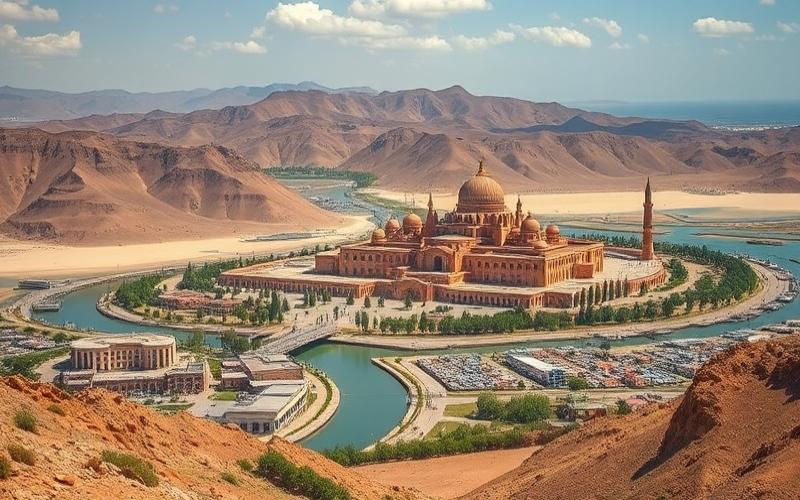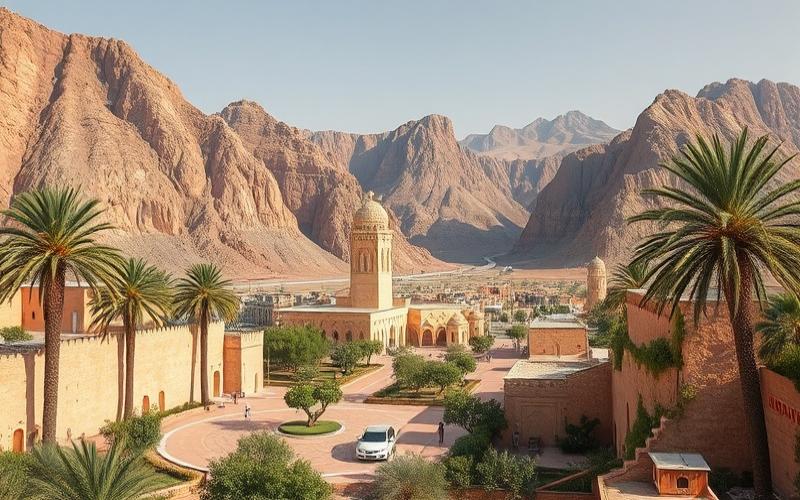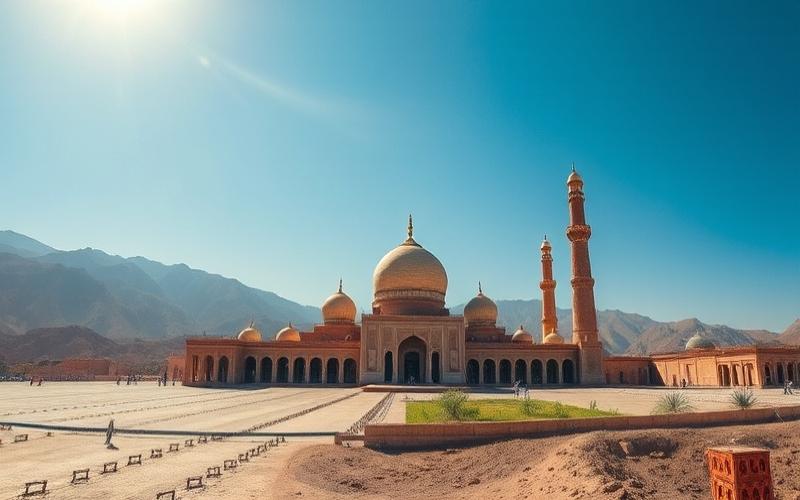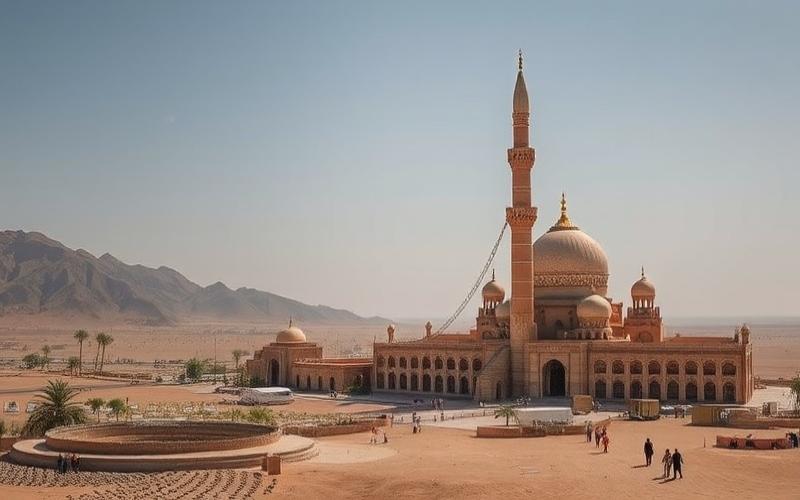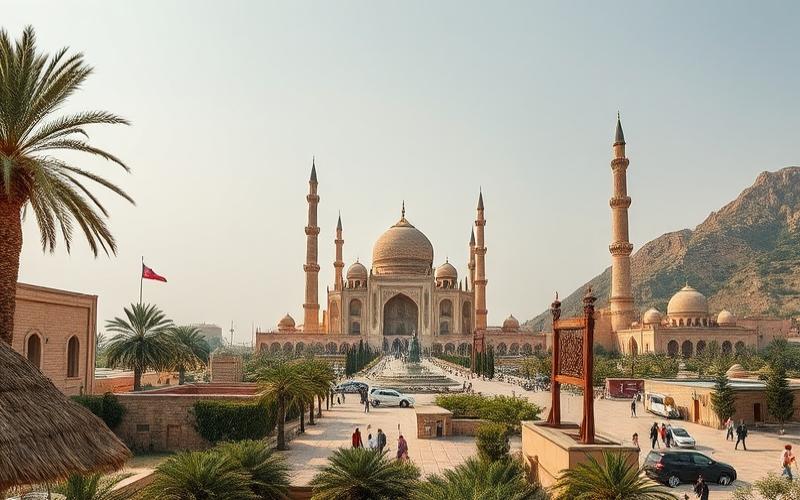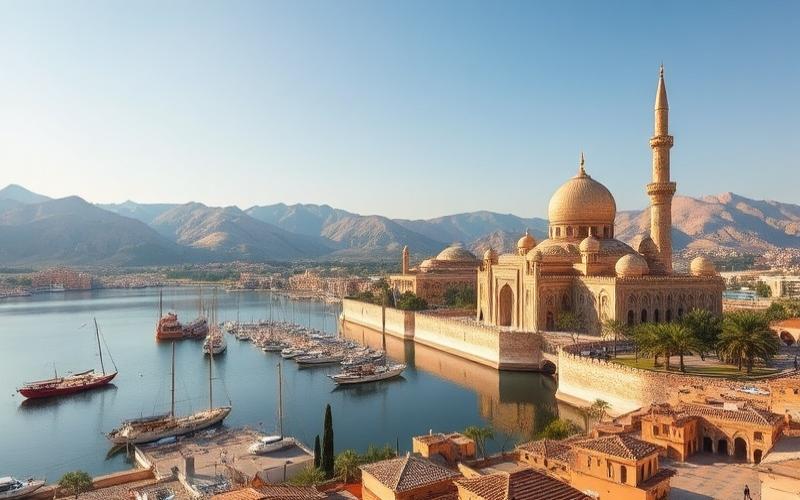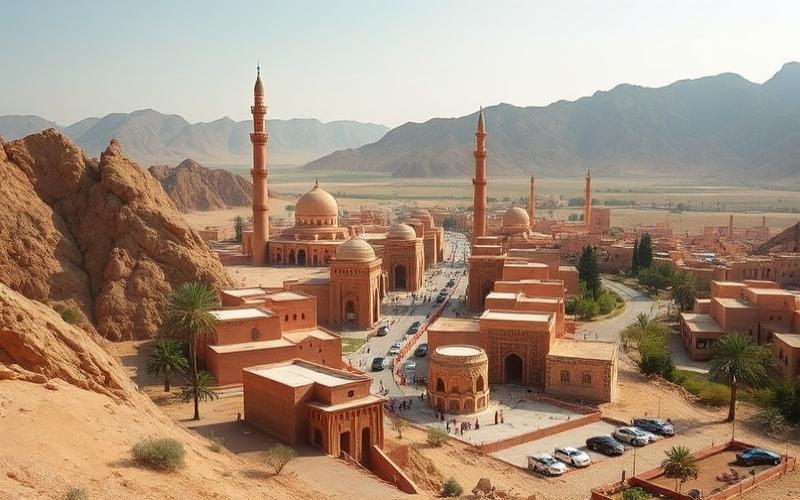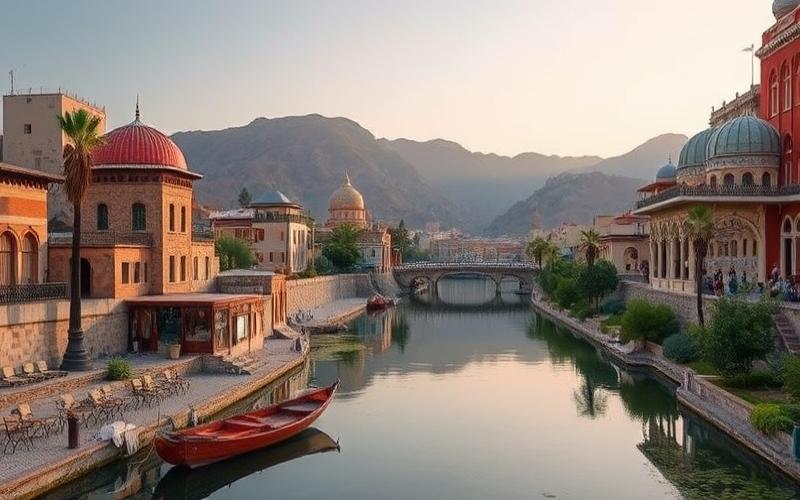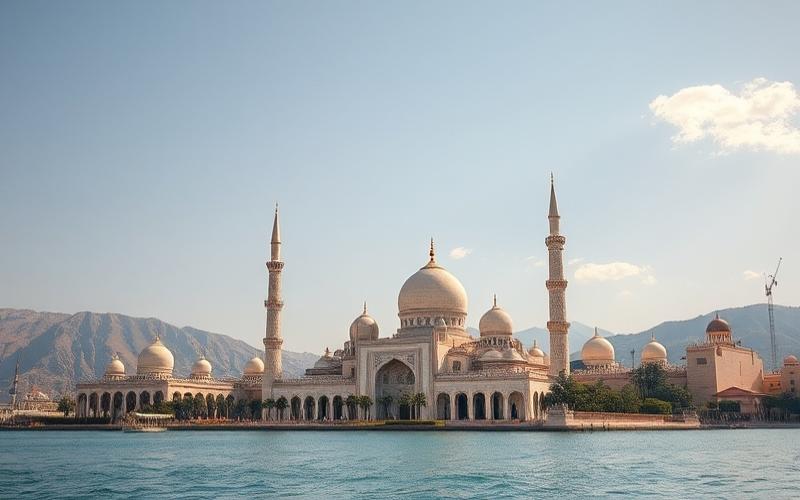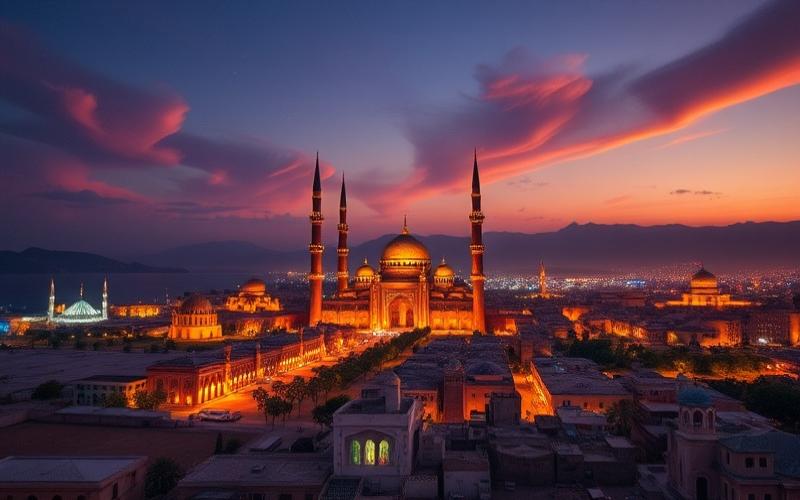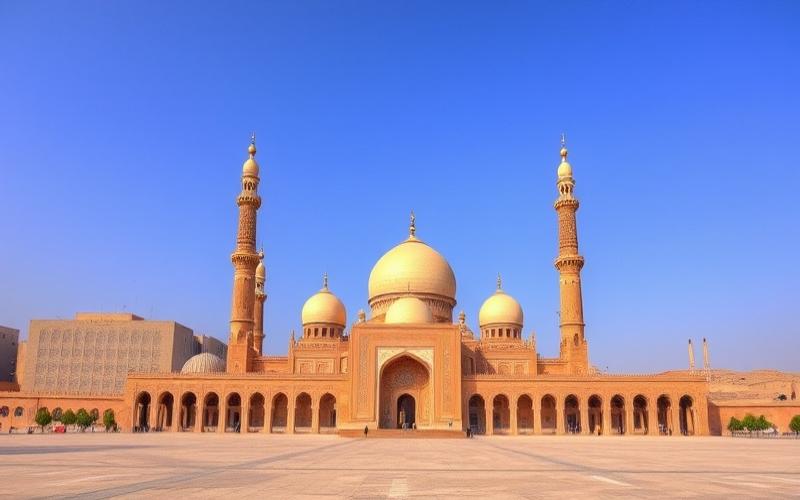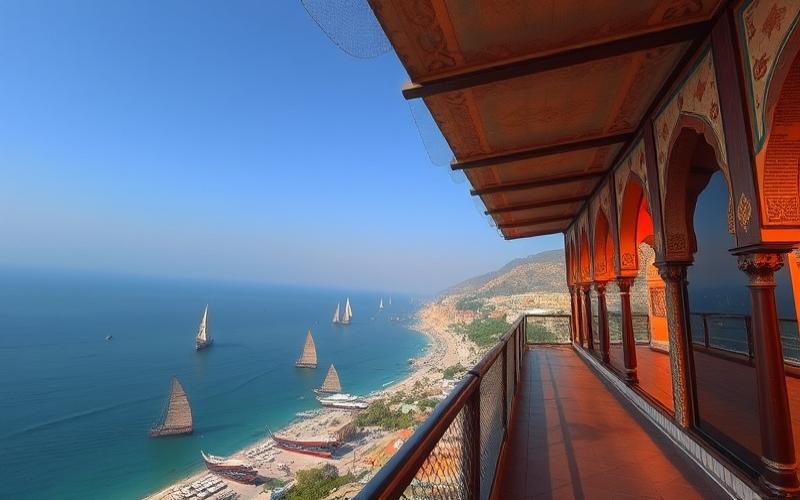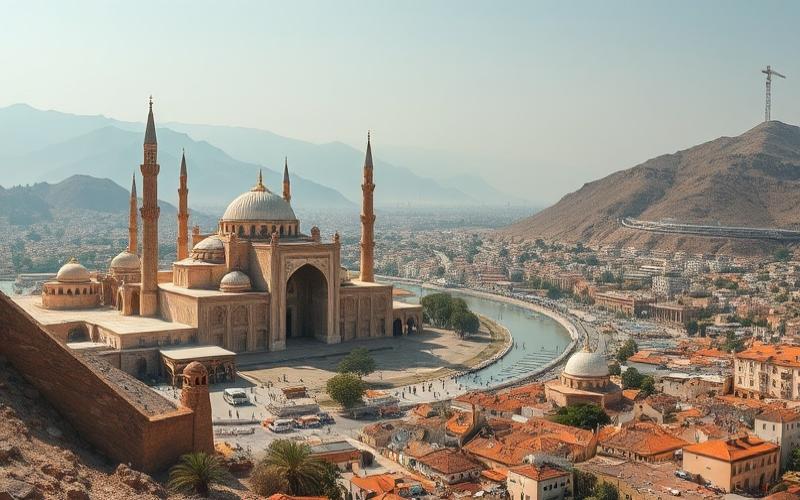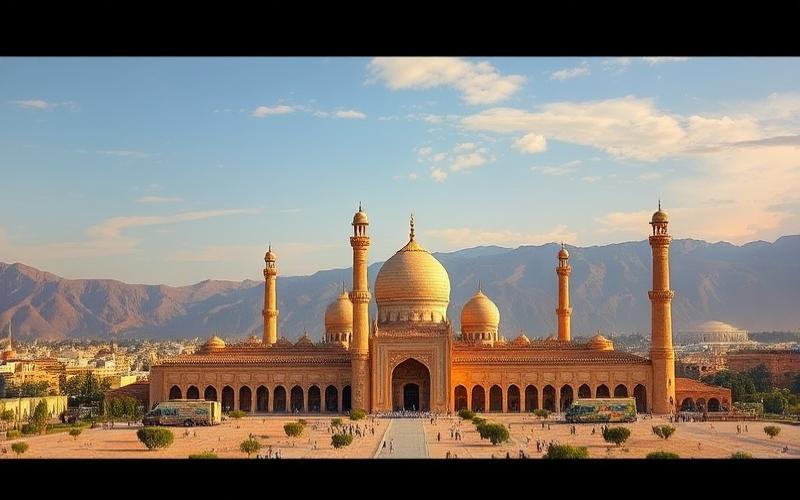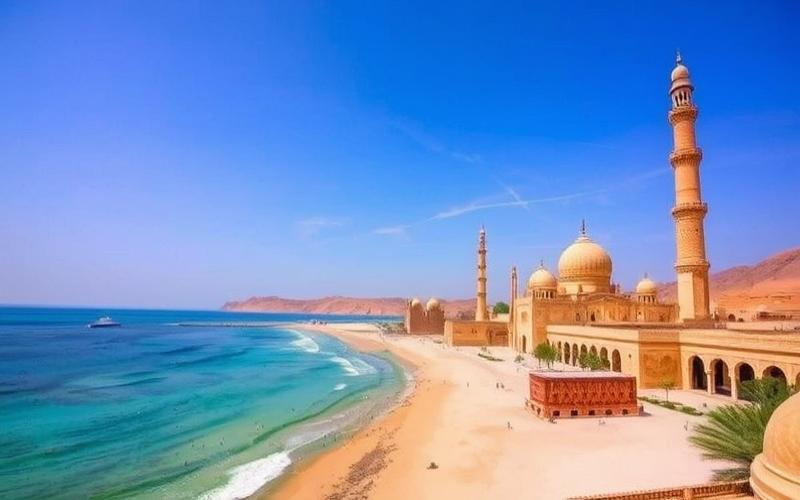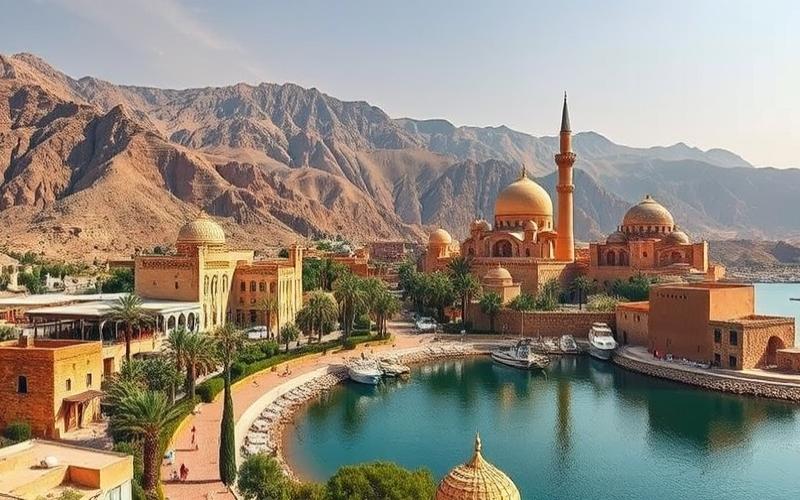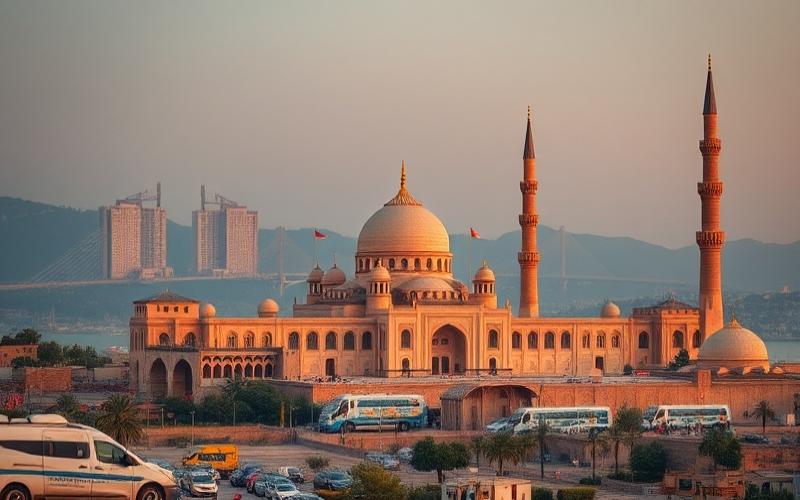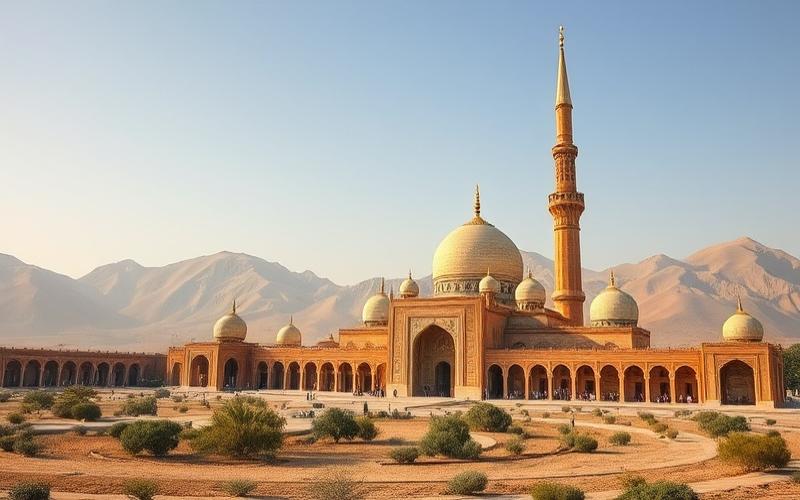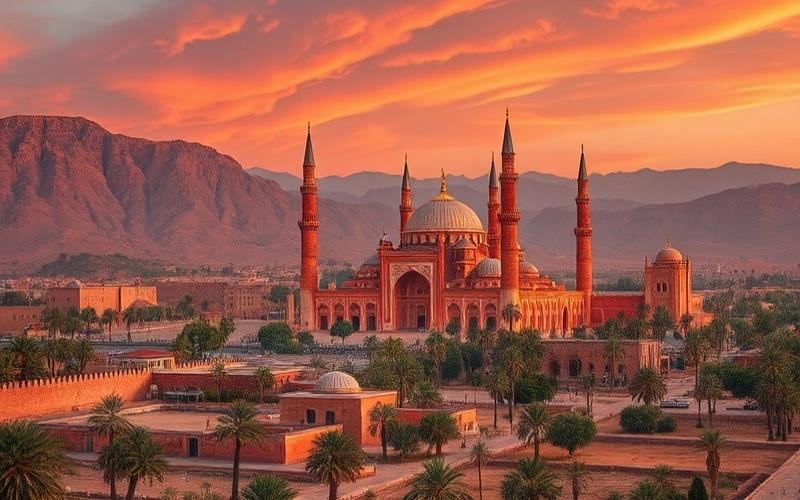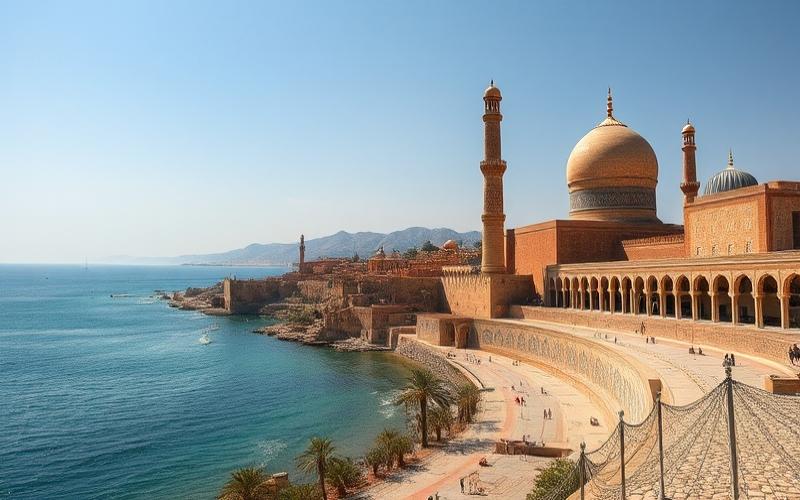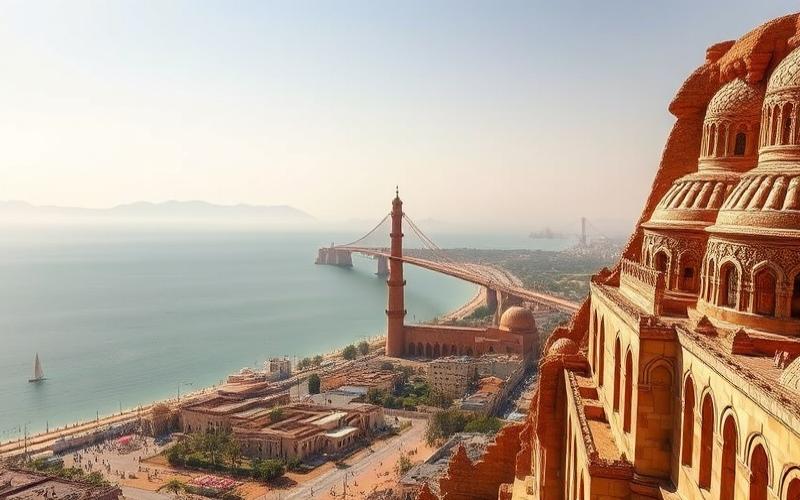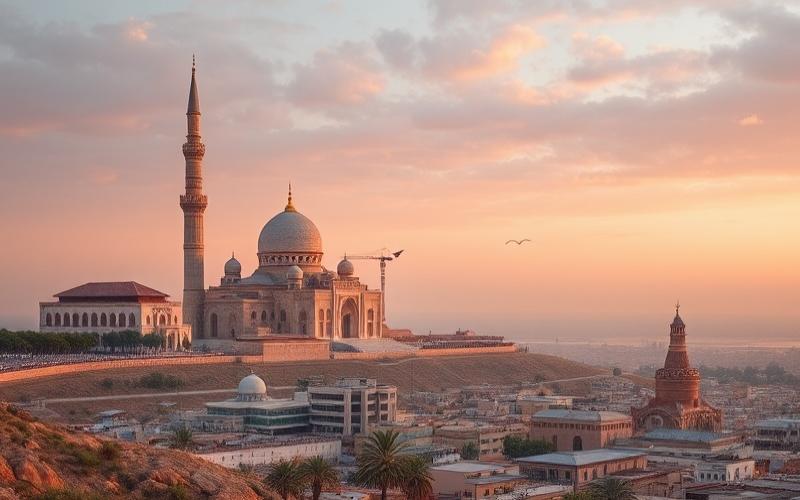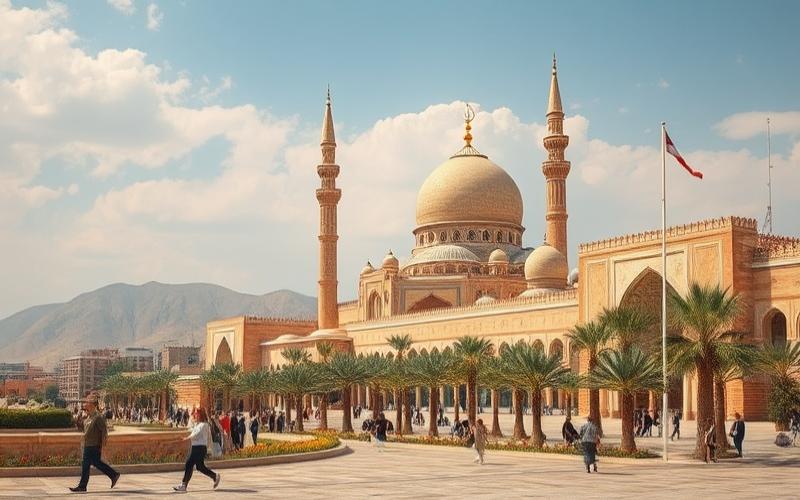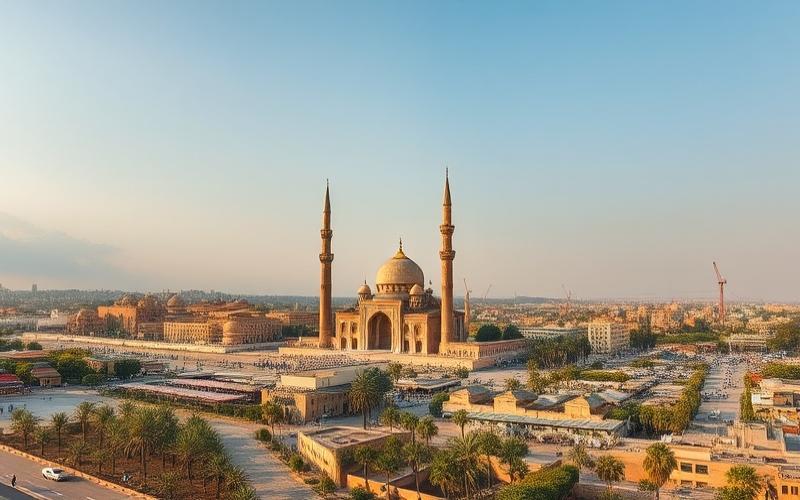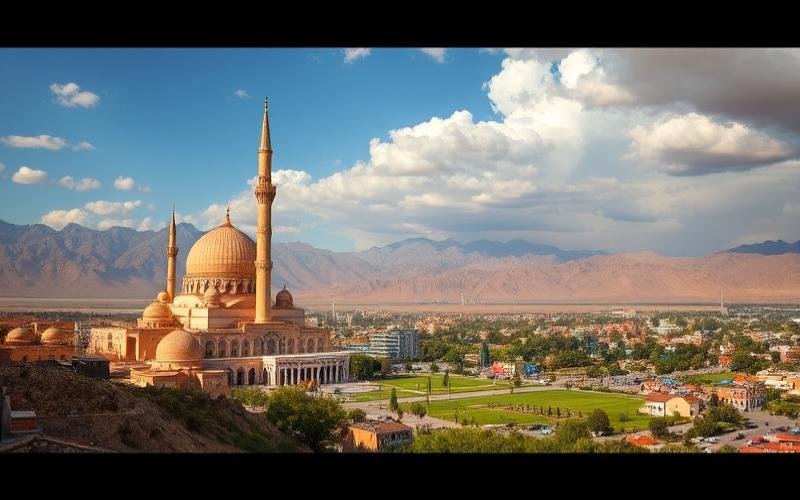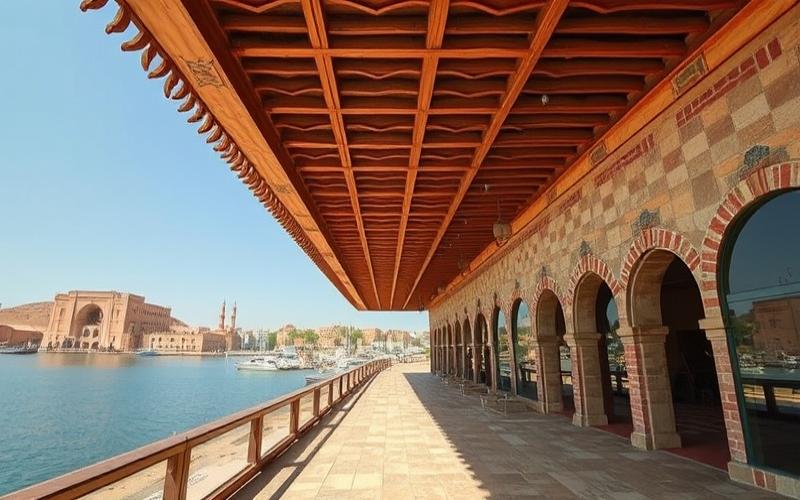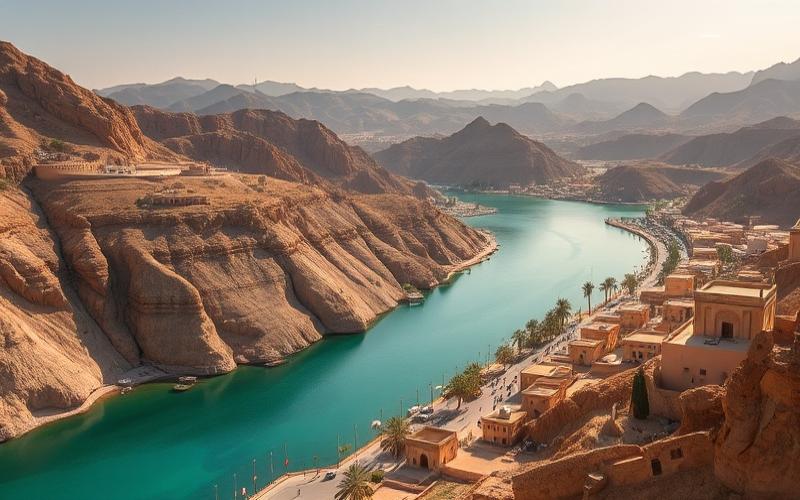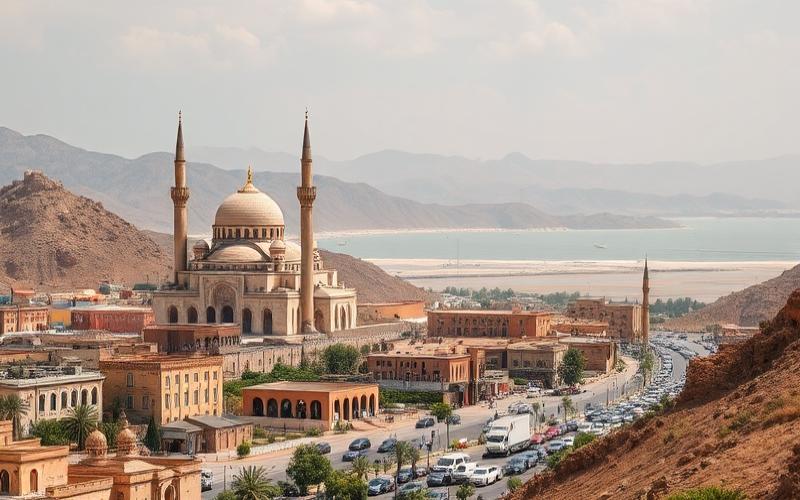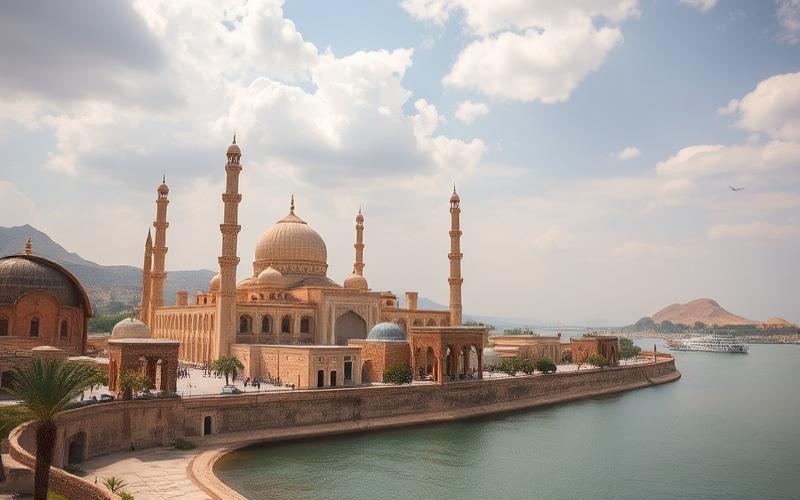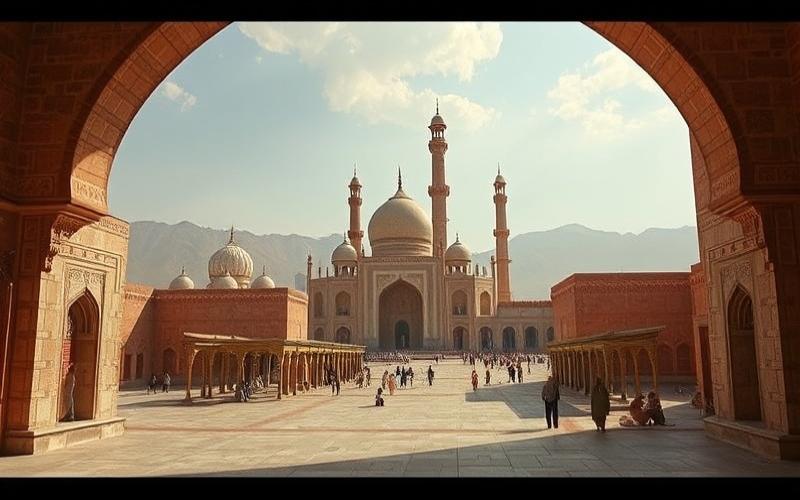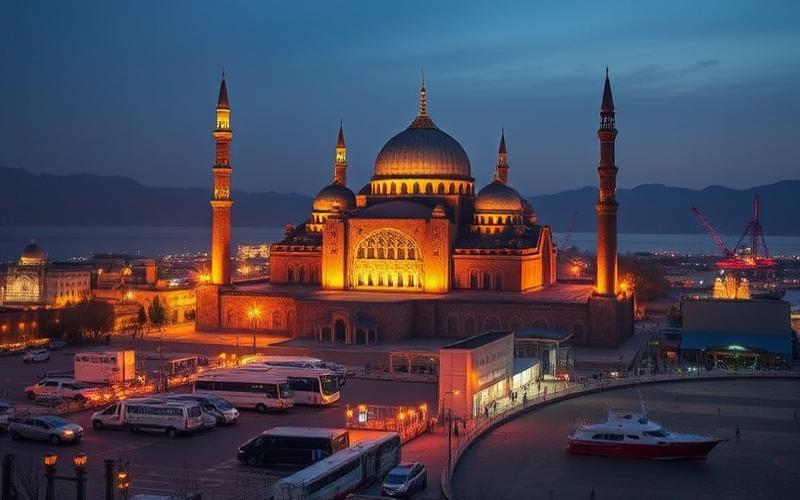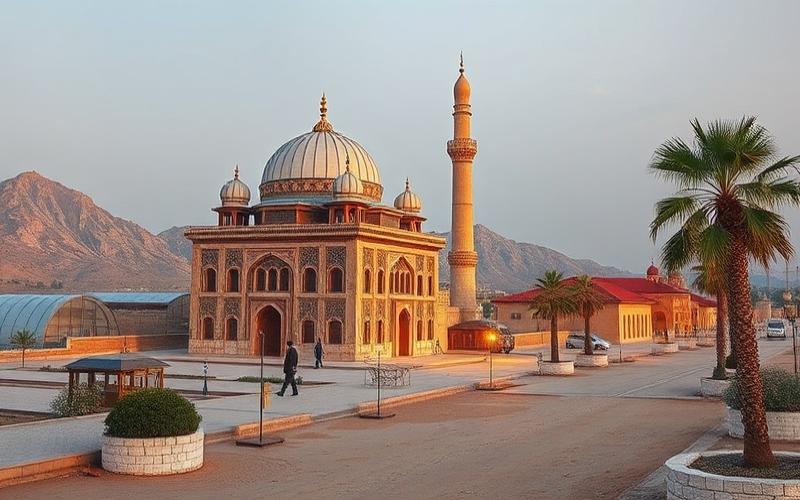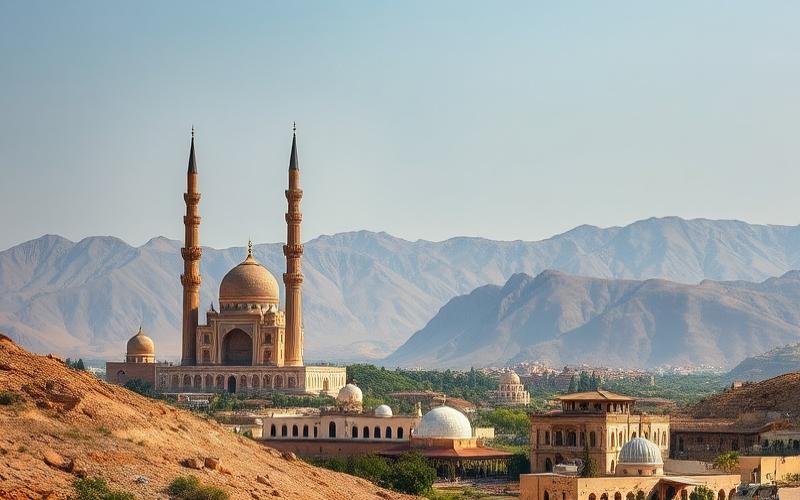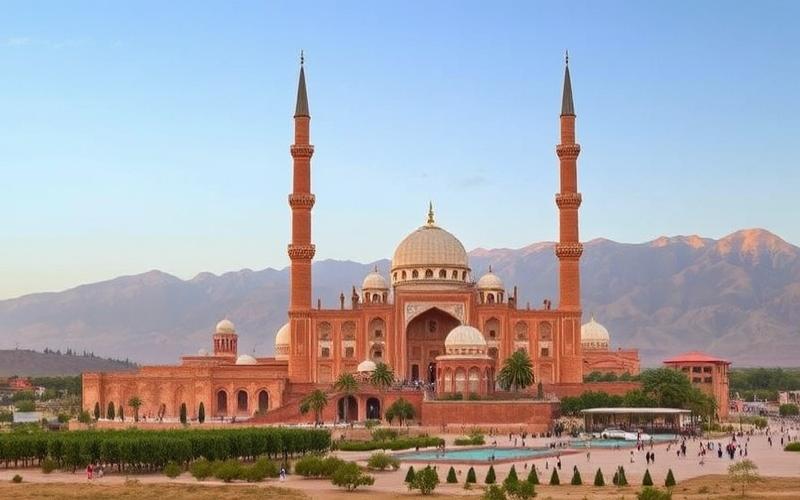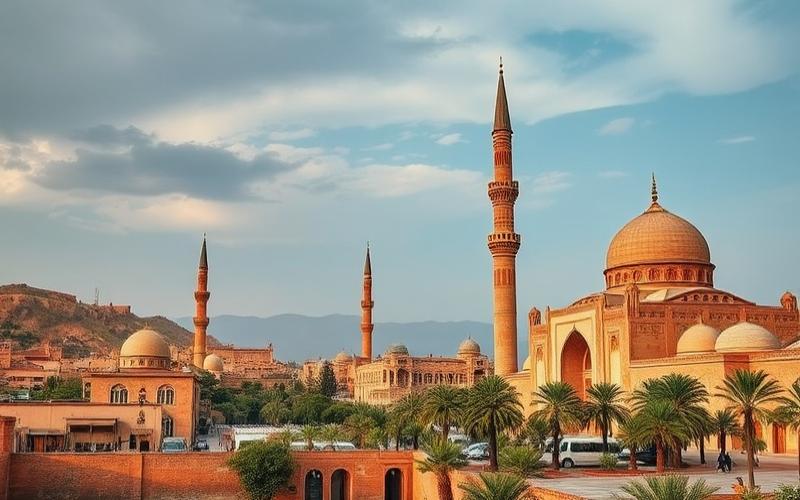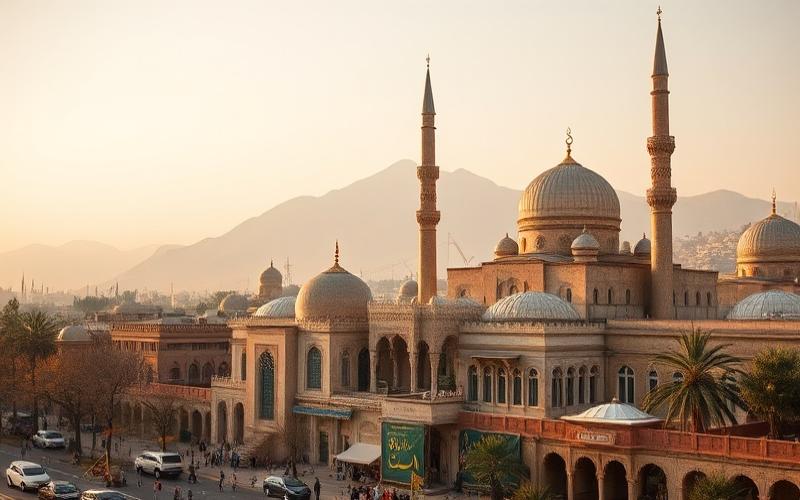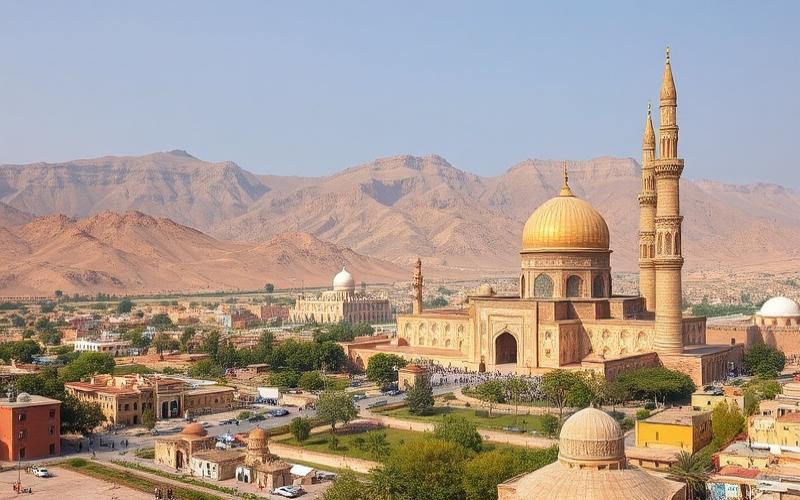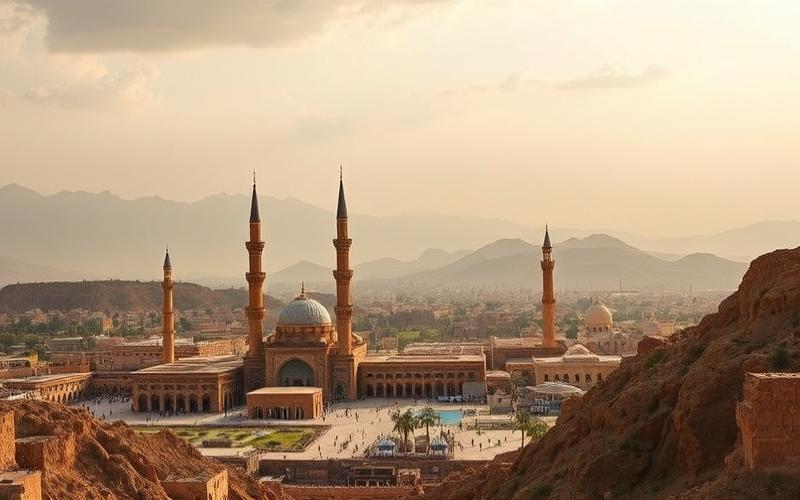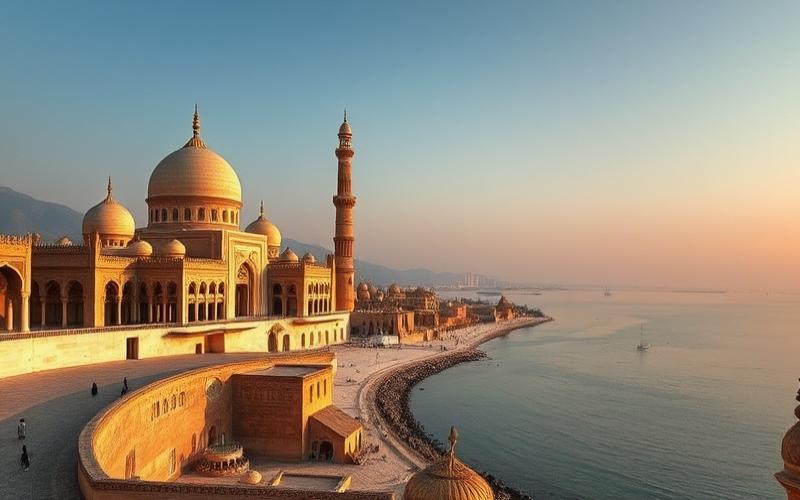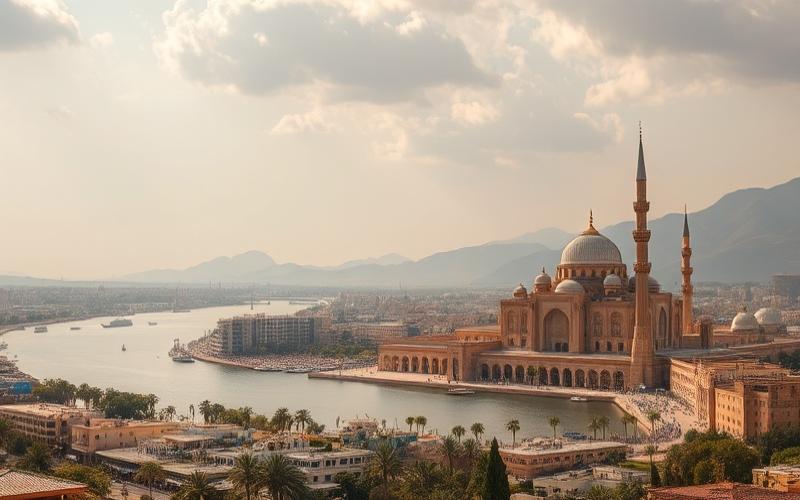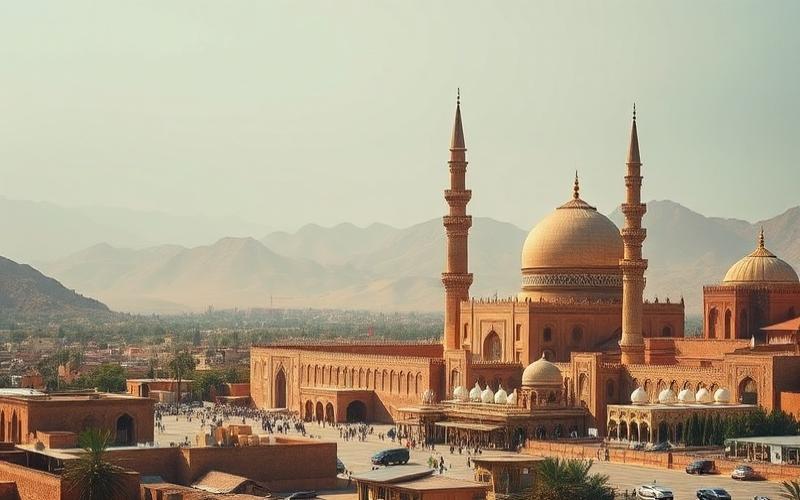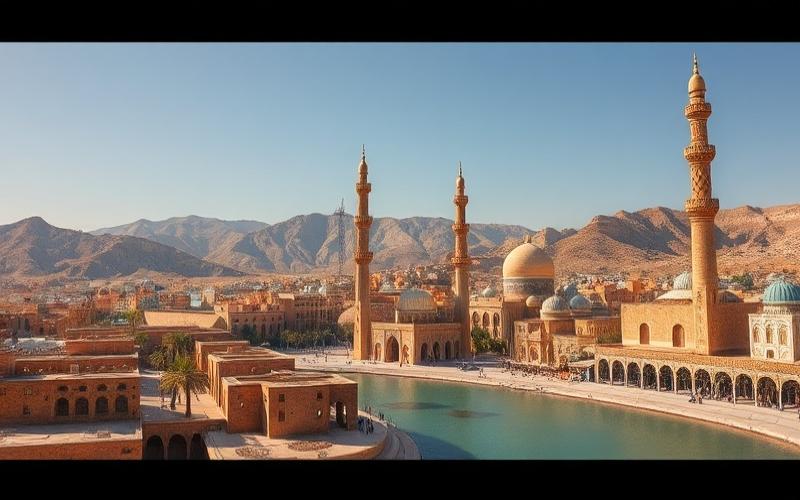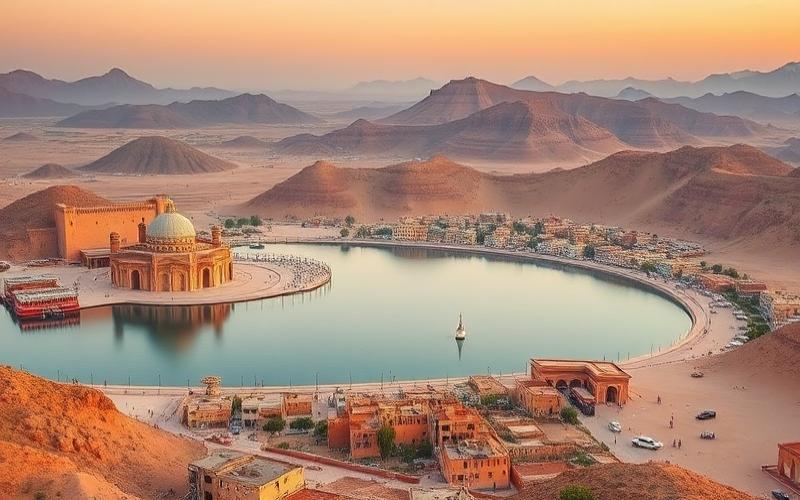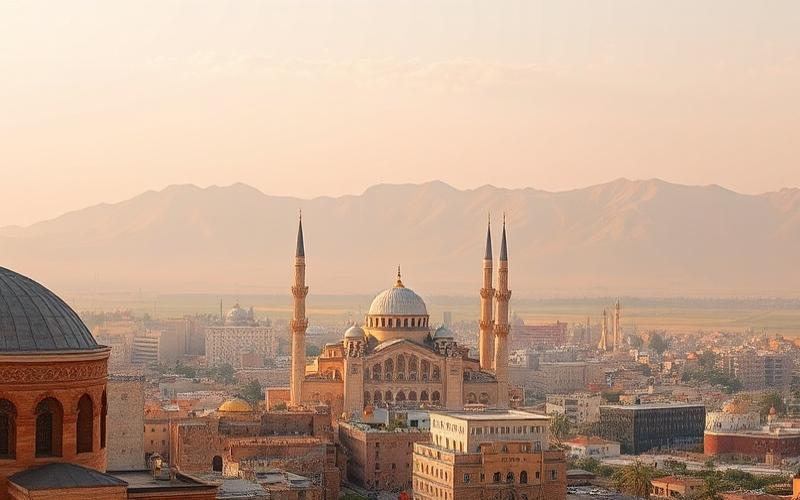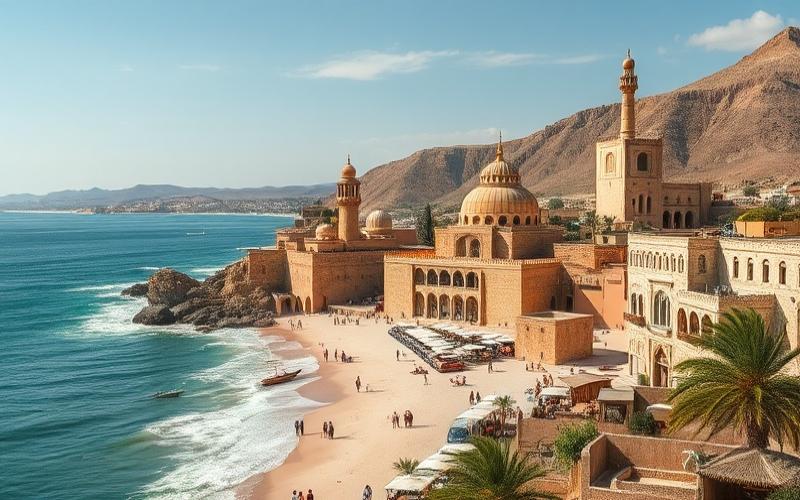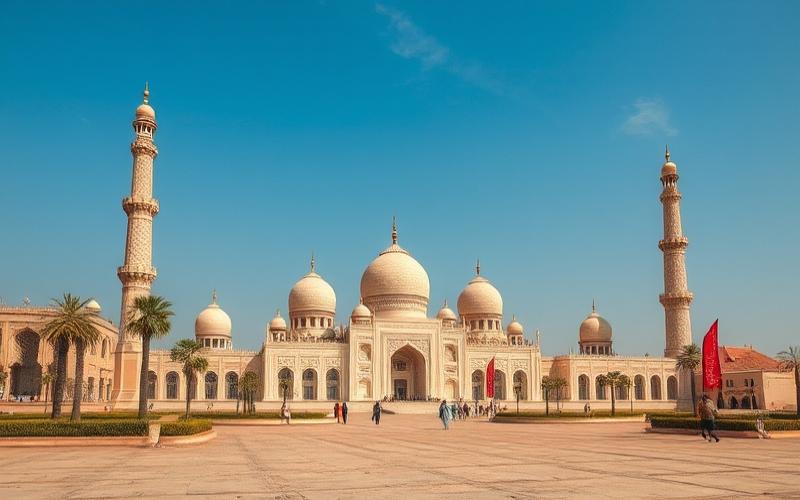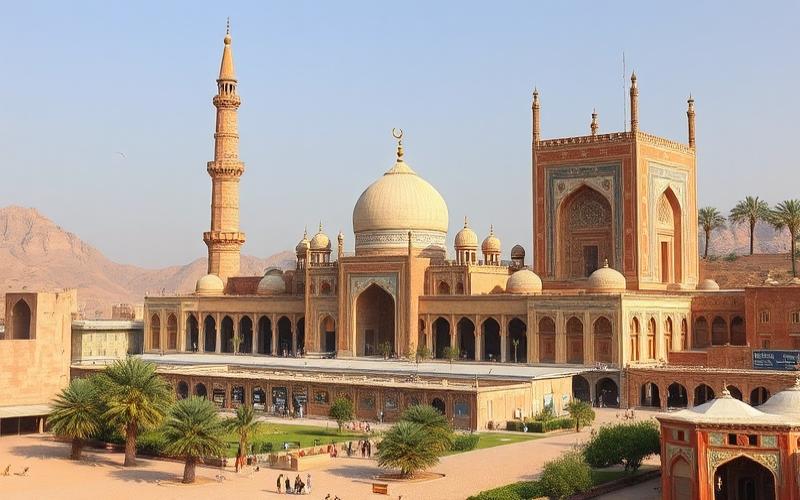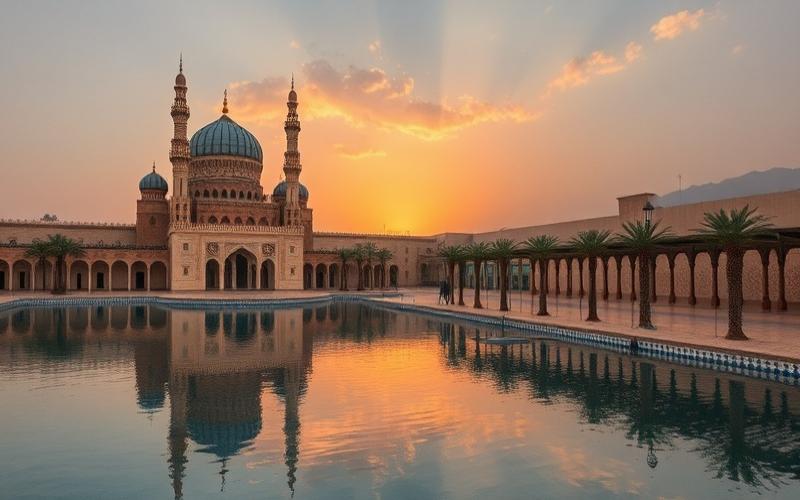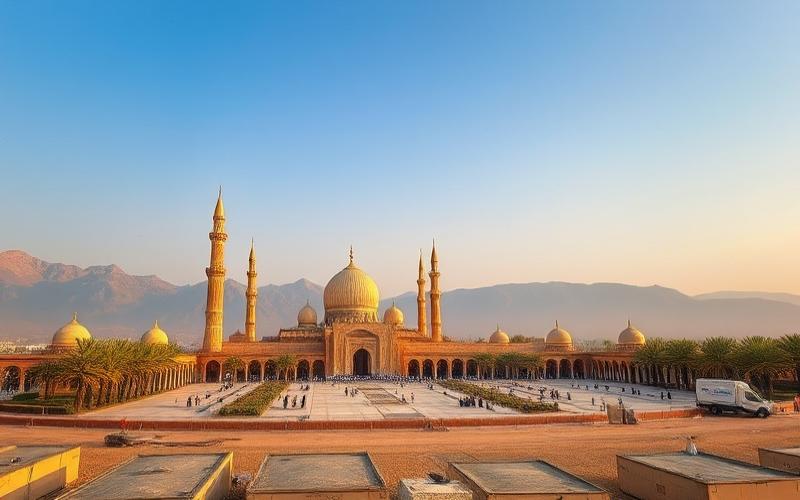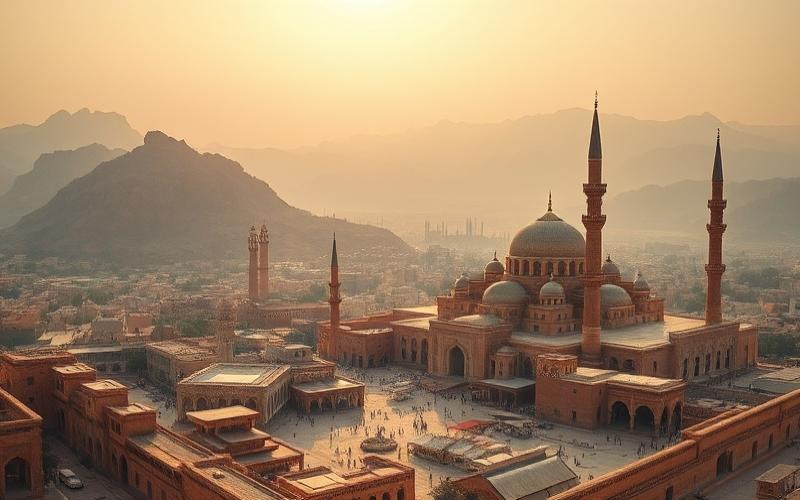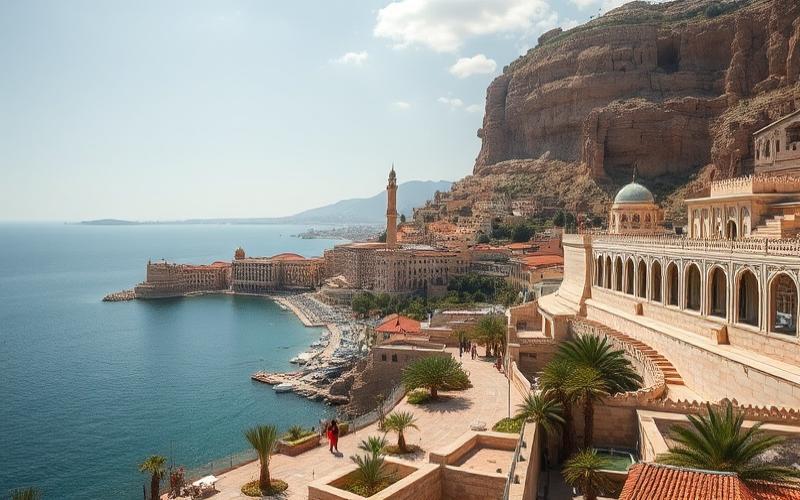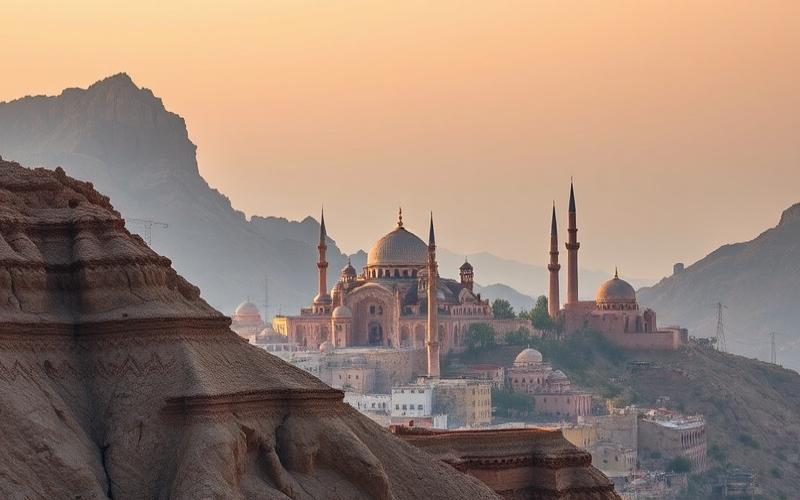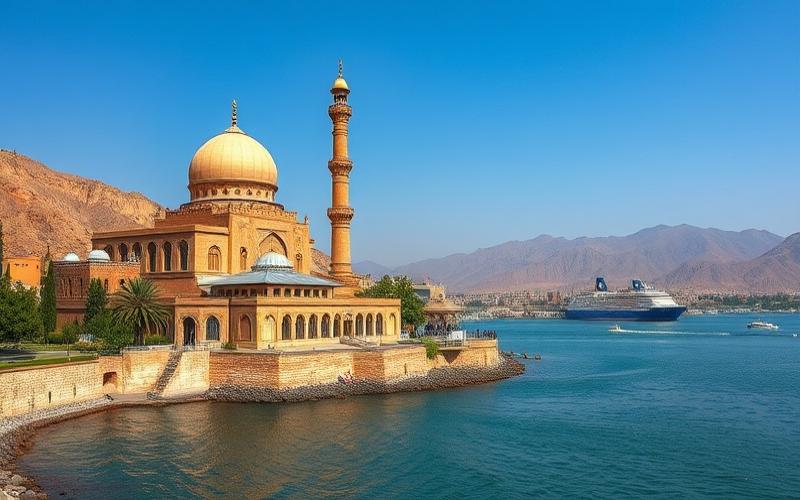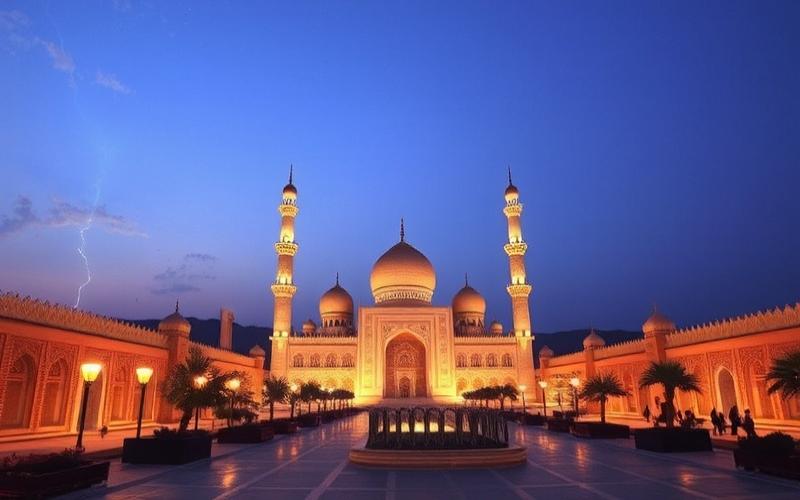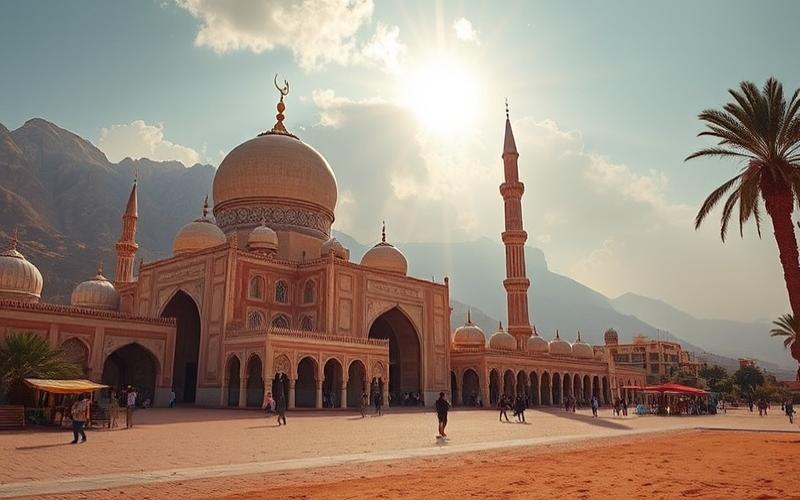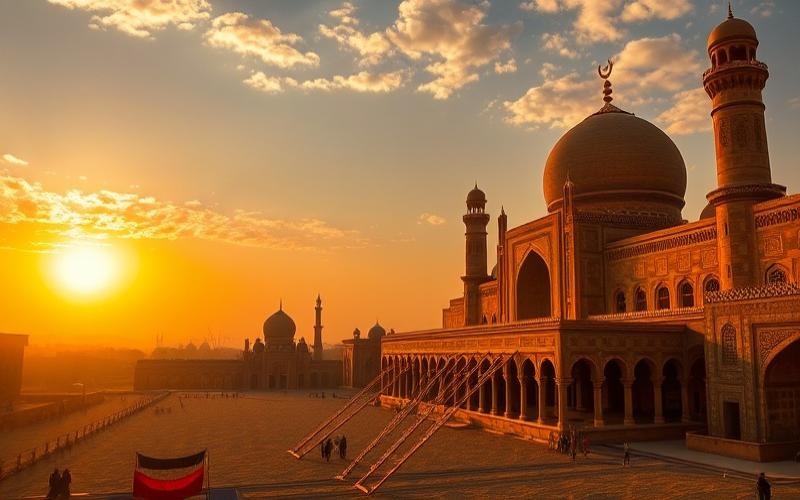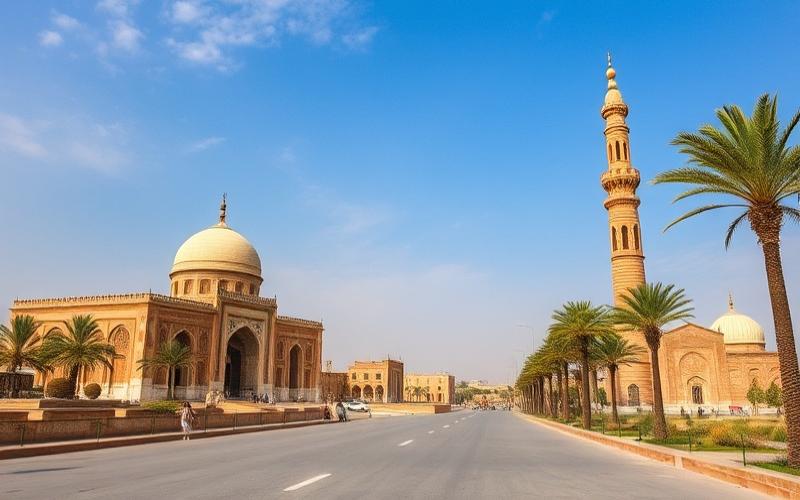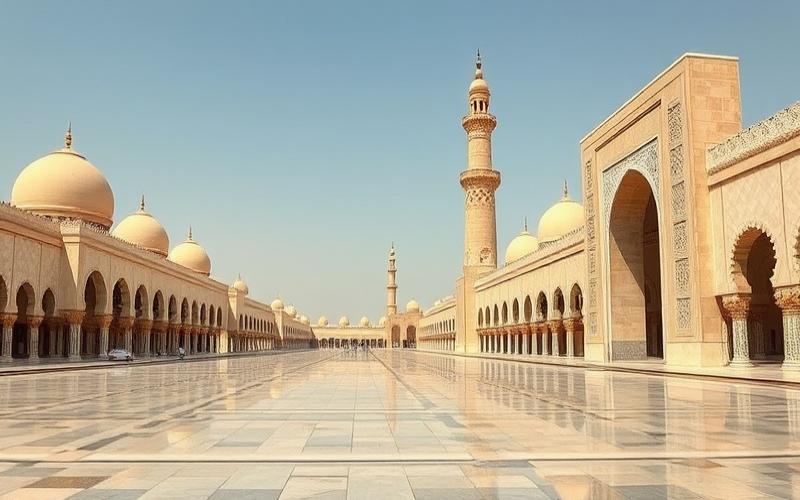
 Published on and written by Cyril Jarnias
Published on and written by Cyril Jarnias
Located in the heart of the Persian Gulf, Bahrain attracts many expatriates thanks to its unique blend of modernity and tradition. However, before settling there, it’s crucial to understand the cost of living in this small island kingdom. While some aspects of daily life are affordable, others can quickly drive up expenses.
With a growing economy and a dynamic job market, Bahrain offers unparalleled opportunities, but every expatriate should be aware of the financial implications of choosing to settle there. This article explores in detail the various elements that make up the cost of living in Bahrain, providing practical advice for navigating this distinct economic environment.
Exploring the Cost of Living: Comparisons and Examples
The cost of living in Bahrain is generally considered more affordable than in other Gulf countries like the United Arab Emirates, Kuwait, or Saudi Arabia, though this varies depending on lifestyle and location. Here’s a detailed comparison with concrete examples tailored for expatriates.
| Expense Category | Bahrain (Manama) | United Arab Emirates (Dubai/Abu Dhabi) | Saudi Arabia (Riyadh/Jeddah) | Kuwait (Kuwait City) |
|---|---|---|---|---|
| 2-Bedroom Apartment Downtown | 600-950 BHD/month | 4,000-7,500 AED/month | 2,500-5,000 SAR/month | 300-650 KWD/month |
| Average Restaurant Meal | 6-10 BHD | 29 AED | 40 SAR | 3–7 KWD |
| Monthly Groceries | ~120 BHD/person | ~900 AED/person | ~800 SAR/person | ~80–100 KWD/person |
| Urban Transport Ticket | 0.3-0.5 BHD | 3-8 AED | 4-6 SAR | 0.25-0.35 KWD |
“In Bahrain, I was able to rent a spacious apartment with a pool for almost half the price compared to Dubai. Life is also more relaxed here.”
“If you prioritize local food products and avoid high-end Western restaurants too often, it’s possible to save without depriving yourself!”
“You need to plan for good health insurance because some medical costs quickly exceed what would be reimbursed by a standard European health fund.”
Tips for Managing Expenses
- Systematically compare neighborhoods/properties before signing;
- Prioritize local markets for food to avoid markups on imported products;
- Take out appropriate health insurance covering private consultations/local hospitalizations;
- Use public transportation when possible or carpool among expatriates to limit car expenses;
In summary, Bahrain offers a financially attractive alternative among its Gulf neighbors while providing a multicultural environment appreciated by professional expatriates and families seeking budget stability and a comfortable quality of life.
Good to Know:
In Bahrain, housing costs can be lower than in Dubai but higher than in some Saudi cities; an expatriate’s testimony highlights the importance of comparing neighborhoods before choosing. Food expenses are generally comparable to those in Kuwait, while public transport remains limited, making car ownership essential in most cases.
Typical Budget for an Expatriate in Bahrain
Main Monthly Expenses for an Expatriate in Bahrain
| Expense Category | Average Monthly Cost (BHD) | Key Comments |
|---|---|---|
| Housing (1 bedroom) | 225–323 | Downtown: 323 BHD; Outskirts: 225 BHD |
| Utilities (85 m²) | 49 | Water, electricity, air conditioning; subsidized |
| High-Speed Internet | 16.5 | 60 Mbps or higher plan |
| Groceries (supermarket) | 80–150 | Varies depending on local or imported products |
| Public Transportation | 15–25 | City buses, taxis; underdeveloped |
| Personal Vehicle | >200 | Rental/purchase, very affordable gas (0.18 BHD/liter) |
| Recreation/Entertainment | 60–150 | Restaurant: 20 BHD for 2, gym: 30 BHD, cinema: 4 BHD |
| Healthcare | 30–100 | Private insurance recommended; cost varies by coverage |
Housing
- Downtown (e.g., Manama): 1-bedroom apartment, between 320–330 BHD/month.
- Outskirts/residential areas: from 225 BHD/month.
- The most sought-after neighborhoods (Seef, Amwaj Islands, Juffair) have higher rents and modern housing.
- Furnished villas or apartments cost more, especially with included services.
Utilities
Electricity, water, air conditioning: approximately 49 BHD/month for 85 m², thanks to government subsidies.
Internet: fiber optic or ADSL plan around 16.5 BHD/month.
Food
Local products (market or supermarket):
- Fresh bread: 0.57 BHD
- Milk: 0.64 BHD/liter
- Chicken (1 kg): 2.75 BHD
- Apples (1 kg): 0.94 BHD
Imported products:
Higher prices, especially for European or organic products.
The food budget can therefore double if you prioritize imported products.
Transportation
Public transportation: underdeveloped bus system, low cost (15–25 BHD/month depending on frequency of use).
Personal vehicle:
- Very cheap gas (0.18 BHD/liter).
- Car purchase or rental: from 150–250 BHD/month for a used vehicle or lease.
- Insurance, maintenance, and parking to be budgeted additionally.
Recreation and Entertainment
- Mid-range restaurant for two: 20 BHD.
- Gym membership: 30 BHD/month.
- Cinema: 4 BHD per ticket.
- Other leisure activities (bars, outdoor activities, private clubs): variable depending on lifestyle.
Healthcare
Public facilities are accessible but most expatriates opt for private health insurance.
Budget 30–100 BHD/month depending on the extent of coverage (consultations, hospitalization, maternity, etc.).
Practical Tips for Optimizing Your Budget
- Prioritize outlying neighborhoods for cheaper housing while maintaining a good comfort level.
- Buy local products and avoid imports to reduce the food bill.
- Use air conditioning reasonably to limit electricity costs, especially in summer.
- Favor carpooling or buying a used vehicle, as public transport options remain limited.
- Negotiate rent and opt for housing with included services (internet, water).
- Subscribe to appropriate health insurance upon arrival to avoid unexpected costs.
- Take advantage of free or subsidized leisure activities: public beaches, parks, cultural events organized by the expatriate community.
In Bahrain, expatriate life remains generally affordable, especially thanks to the absence of income tax and subsidies on essential services. Careful management of housing, food, and transportation allows for control over the monthly budget.
Good to Know:
Plan a housing budget of 800 to 1500 BHD depending on the neighborhood, and budget about 50 to 75 BHD for monthly utilities. To save, opt for public transportation and prioritize local products at the supermarket.
Tips and Tricks for Saving in Bahrain
Practical methods to reduce daily expenses:
- Choose competitively priced supermarkets and systematically compare prices per kilo or liter. Prioritizing bulk purchases, especially for non-perishable items on sale, allows for significant savings.
- Frequent local markets, especially to buy seasonal fruits and vegetables or take advantage of low-cost unsold items. Picking directly from local producers is also a beneficial alternative.
- Opt for public transport rather than a personal car significantly reduces the transportation budget (fuel, maintenance, parking).
- Plan meals and create a precise shopping list helps avoid food waste and strongly limits impulse purchases.
- Buying in bulk (pasta, rice, nuts) is often 10 to 15% cheaper than traditional packaged purchases.
| Expense Category | Concrete Tips |
|---|---|
| Food | Compare prices per kilo/liter; buy non-perishables on sale; opt for bulk |
| Transportation | Get public transport passes; prioritize biking or walking if possible |
| Regular Purchases | Use apps for unsold item recovery; monitor short-dated items |
| Recreation | Take advantage of group deals or online bargains |
Specific Housing Advice:
- Sharing an apartment (roommate) allows splitting all fixed costs (rent, electricity, internet).
- Moving to an outlying neighborhood generally offers a better price-to-space ratio while remaining accessible via public transport.
Digital Applications and Tools:
- Use price comparison apps, which allow quick identification of where to find each product at the lowest price.
- Download apps specialized in recovering unsold food items from local stores.
- Participate in loyalty programs offered by certain stores or supermarkets to accumulate points or immediate discounts on your recurring purchases.
Banking Optimization:
To avoid high banking fees:
- Choose a local bank with a clear fee structure, without hidden fees or significant commissions on standard operations. Regularly compare its banking conditions with those on the local market.
- Use a banking app that allows budget management: personalized alerts when exceeding the set threshold per spending category/desired minimum balance.
Checklist:
- Systematically compare before each purchase
- Fully utilize bulk and promotions
- Favor roommate/outlying neighborhoods for housing
- Opt for public transport as much as possible
- Use mobile apps (comparators/prices/unsold items)
- Join loyalty programs/frequented stores
Adopting these habits not only significantly lightens your monthly budget but also firmly establishes a responsible lifestyle regarding personal finances.
Good to Know:
Opt for competitively priced supermarkets and local markets to save money, and use public transport for less expensive travel. To reduce banking fees, choose local banks and live in outlying neighborhoods to ease the housing budget.
Disclaimer: The information provided on this website is for informational purposes only and does not constitute financial, legal, or professional advice. We encourage you to consult qualified experts before making any investment, real estate, or expatriation decisions. Although we strive to maintain up-to-date and accurate information, we do not guarantee the completeness, accuracy, or timeliness of the proposed content. As investment and expatriation involve risks, we disclaim any liability for potential losses or damages arising from the use of this site. Your use of this site confirms your acceptance of these terms and your understanding of the associated risks.

